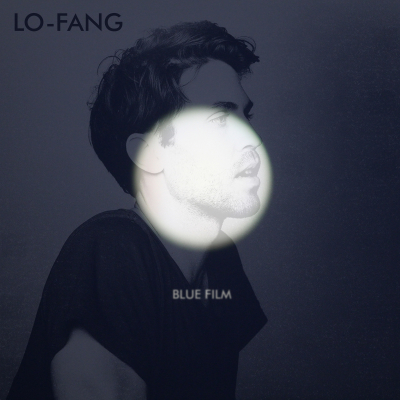Lo-Fang
Los Angeles-based singer-songwriter Lo-Fang – aka Matthew Hemerlein – conceived and wrote his debut album Blue Film while traveling around the world and across the United States over the last three years. His passion for making music led him to pick up and play with musicians in Cambodia, Bali, London, Nashville, Tokyo, and other points along the way. Songs were written in transit, in hotel rooms, and anywhere the moment inspired him. Billboard’s Jason Lipshutz writes, “Blue Film funnels Hemerlein’s various vagabond experiences in 12 tracks of ornate, rhythmic electronica worth disappearing in.”
A classically trained musician, Lo-Fang is fluent in diverse genres and styles of playing, which are juxtaposed throughout Blue Film. He sings all the vocals—his falsetto is soulful and often hypnotic—and plays every instrument, among them, violin, cello, piano, guitar and upright bass. The set veers from minimalist to intimately symphonic, including ten original songs and two covers. The tracks are sequenced into an atmospherically ethereal blend of shifting textures, beats, and moods that Dazed & Confused called a “brooding, quietly intense exercise in electronic torch song.”
Lo-Fang says the initial template for record was based on a mix-tape called “Blue Film,” an assemblage of songs from various places and states of mind dating back to 2009. Some tracks grew out of events from his own personal evolution. Lyrics might come from a phrase spoken in conversation, or a fly on a wall that persisted as background noise—the ephemera of life. Like a novel written with elegant economy of prose, Blue Film evokes feelings beyond what the words convey. The merger of Lo-Fang’s classical background with his left-of-center approach to pop songwriting further deepens the punch. There’s mystery to the music, which aligns with his preference for each listener to arrive at their own interpretation.
Blue Film was cut at studios in London, Nashville, and Los Angeles and finished at the storied Capitol Studios in Hollywood. Throughout, Hemerlein collaborated intensely with GRAMMY Award-winning producer Francois Tetaz (Gotye), who he says has “a vast encyclopedic knowledge of music” that illuminated and reflected his work at every step of the process.
The album’s opening track, ‘Look Away’ is up-tempo, dreamlike and psychedelic, with a lush strings interlude mid-song. ‘#88’ opens with spare picking and swells to orchestral fullness. Lo-Fang’s cover of BOY’s ‘Boris’ adds an edgy darkness – likewise, his take on the buoyant Grease classic ‘You’re The One That I Want’ is fueled by both longing and menace. Both covers are true to Lo-Fang’s thoughts on reimagining songs – “I think of them more as remakes, like with movies. I take the same story arc, but everything is different—tone, colors, tempo. Like what Christopher Nolan does with Batman, that sort of thing.”
A classically trained musician, Lo-Fang is fluent in diverse genres and styles of playing, which are juxtaposed throughout Blue Film. He sings all the vocals—his falsetto is soulful and often hypnotic—and plays every instrument, among them, violin, cello, piano, guitar and upright bass. The set veers from minimalist to intimately symphonic, including ten original songs and two covers. The tracks are sequenced into an atmospherically ethereal blend of shifting textures, beats, and moods that Dazed & Confused called a “brooding, quietly intense exercise in electronic torch song.”
Lo-Fang says the initial template for record was based on a mix-tape called “Blue Film,” an assemblage of songs from various places and states of mind dating back to 2009. Some tracks grew out of events from his own personal evolution. Lyrics might come from a phrase spoken in conversation, or a fly on a wall that persisted as background noise—the ephemera of life. Like a novel written with elegant economy of prose, Blue Film evokes feelings beyond what the words convey. The merger of Lo-Fang’s classical background with his left-of-center approach to pop songwriting further deepens the punch. There’s mystery to the music, which aligns with his preference for each listener to arrive at their own interpretation.
Blue Film was cut at studios in London, Nashville, and Los Angeles and finished at the storied Capitol Studios in Hollywood. Throughout, Hemerlein collaborated intensely with GRAMMY Award-winning producer Francois Tetaz (Gotye), who he says has “a vast encyclopedic knowledge of music” that illuminated and reflected his work at every step of the process.
The album’s opening track, ‘Look Away’ is up-tempo, dreamlike and psychedelic, with a lush strings interlude mid-song. ‘#88’ opens with spare picking and swells to orchestral fullness. Lo-Fang’s cover of BOY’s ‘Boris’ adds an edgy darkness – likewise, his take on the buoyant Grease classic ‘You’re The One That I Want’ is fueled by both longing and menace. Both covers are true to Lo-Fang’s thoughts on reimagining songs – “I think of them more as remakes, like with movies. I take the same story arc, but everything is different—tone, colors, tempo. Like what Christopher Nolan does with Batman, that sort of thing.”

